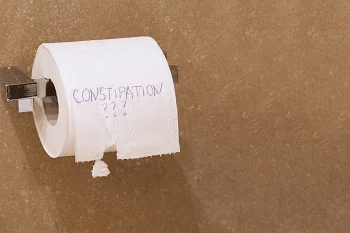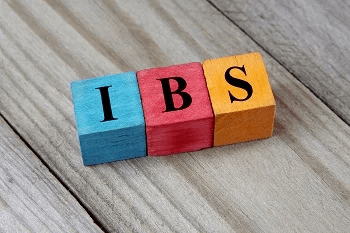By Dr Adam Simon
9 tips for when you’ve just been diagnosed with IBS
Getting diagnosed with irritable bowel syndrome (IBS) can be hard. You'll have concerns about how your condition will affect both your personal and professional life, while you'll also face restrictions on what you can and can't eat.
This is perfectly understandable. However, a definitive diagnosis means that you can start to manage your symptoms and ensure IBS doesn't dominate your life. The good news is, there are plenty of things you can do to help yourself.
Let's take a look at some techniques you can try straight away if you've just been told you've got IBS.
Review Your Diet
As IBS is linked to digestion, it follows that certain foods will make the problem worse. Your first step should be to identify those foods and either limit or completely remove them from your diet.
Your task will be to identify the foods you think might be to blame for flare-ups and test what happens if you stop eating them. By trying them out one at a time, you'll know which foods you should definitely cut back on.
Everyone's different, so there are no concrete rules about the foods that will or won't trigger your symptoms and you'll need to become something of a self-scientist in identifying likely triggers.
However, it's thought that fatty foods such as dairy products, red meat or anything deep fried is best avoided, because fat prompts your liver to produce bile in order to break the food down. Bile is highly acidic, so it can irritate a sensitive bowel.
This is also true of spicy foods, although everyone's tolerance is different. If you're partial to a curry, consider choosing a milder one that doesn't contain a cream-based sauce or lots of red meat.
Slow Down
It's not just what you eat, it's how you eat it.
If you're eating too quickly, you're probably ingesting a lot of air along with your food. This can contribute to the bloated feeling many IBS sufferers experience. Other activities such as chewing gum can also cause this.
It's important not to rush meals, which can be difficult to do as it's often not something you'll think about or notice. Larger chunks of food will be more difficult to digest, while swallowing your food too fast also means you miss out on the important first stage of the digestion process.
Your saliva starts to break down food before it even reaches your stomach, so take your time and ensure you only send small, manageable portions down to your digestive system.
Get Plenty of Fluids
We all know that we're supposed to drink eight glasses of water a day. That's not new information. However, if you have IBS, the benefits are very clear.
If constipation is a problem for you, water will help to soften your stools and make going to the toilet a whole lot easier. If you're getting regular bouts of diarrhoea, it's important you drink plenty of water to replace the fluid you've lost.
British Medical Journal, which found it to be an effective antispasmodic.
If you're wondering about drinks to avoid, it's probably best to steer clear of anything caffeinated, fizzy drinks and too much alcohol.
Don't Surprise Your Gut
If you have a sensitive gut, it's best not to do anything that will aggravate it. By getting into a regular mealtime routine, you'll ensure that your digestive system isn't faced with anything unexpected that will cause your symptoms to flare up.
When it comes to mealtimes, it depends what works best for you. Some people have found that a series of small meals throughout the day helps keep IBS at bay, while you may find that the usual three meals per day suits you best. Again, it's about trying different approaches and seeing which one you're most comfortable with.
Talk to People
It can be difficult to talk to people about your health, but with around 20 per cent of the population affected by IBS, it might be easier than you think to find a sympathetic ear.
the gut-brain axis, which details the connection between the two.
You should also consider talking to your boss about it. Keeping IBS a secret at work can be difficult, particularly if regular trips to the toilet are necessary. Many people worry that their boss will notice this and penalise them. You might find it helpful to tell them about it and explain the steps you're taking to try and manage the symptoms.
Of course, we don't live in a perfect world and it's an unfortunate fact that not every boss will be understanding and supportive. If you don't like their reaction, at least you know where you stand and can make an informed decision on your next move.
Exercise Regularly
It's widely believed that any improvement in your general health will help manage your IBS symptoms. There are few better ways to do this than exercise. We're not saying you need to be running marathons, but a brisk 30-minute walk, or a regular game of five-a-side football is a good first step.
The endorphins released when you exercise also lower stress levels. Exercise increases your serotonin, a neurotransmitter that IBS sufferers often don't have enough of, which is known to have a positive effect on gut motility.
Be Prepared
Now that you know you have IBS, you can ensure you're ready to deal with your symptoms when they arise.
Some IBS sufferers choose to get up earlier in the mornings, in order to ensure they have plenty of time in the bathroom and don't start the day stressed.
You can also ensure you don't eat any risky foods the night before an important event, such as a job interview or date. If you're out for a meal and want to avoid attracting attention, you can sit somewhere you are able to easily leave without disturbing people if you need to visit the toilet.
Give Up Smoking
Let's face it, you should be doing this anyway. You can now add IBS to the list of reasons smoking just isn't a good idea.
diarrhoea.
If you do decide to stop, it's important to give your gut time to readjust. Things won't improve straight away, so if you're still getting the same symptoms after a few days, don't assume that smoking isn't a factor in your IBS.
Of course, many people smoke as a way to manage stress, and we already know that stress can also bring about IBS symptoms. Before you give up, it's important you have a plan in place to manage this stress that will stop you from going back to your old habits.
Talk to a Doctor
Any new diagnosis can be scary. The fear of the unknown is a big concern for many, but there are plenty of resources you can draw on to get the support you need.
Try a consultation with one of our doctors today and see how they can help you.

